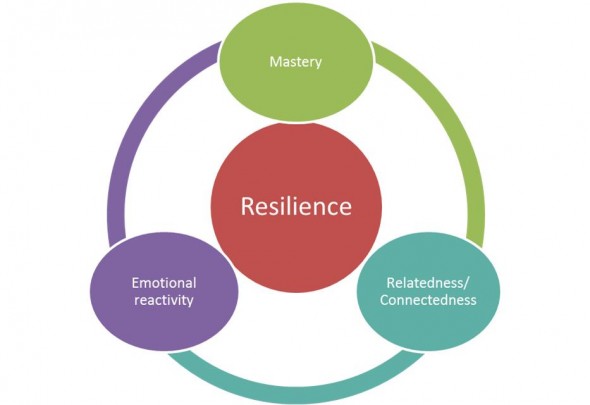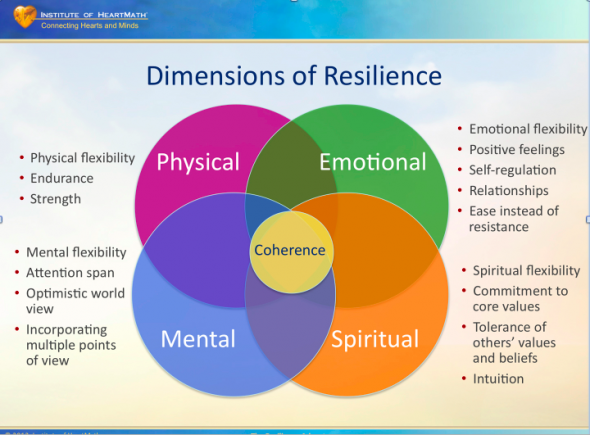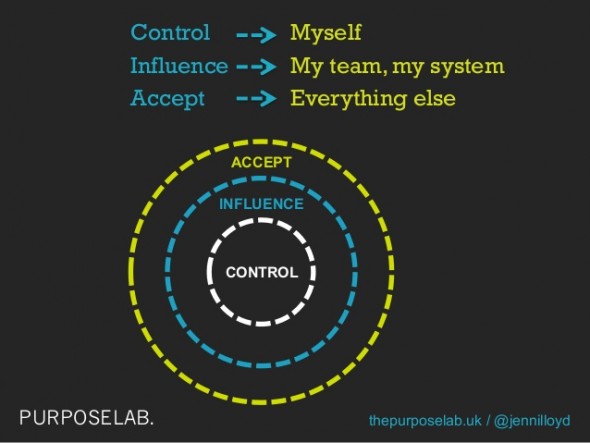
By Claire Cooper, Rajneesh Bhandari, Emma Totten and Cody Matera
Leading with energy, or resilience mastery, was listed as the most challenging area of leadership by 92% of CEOs surveyed for the book Leadership from the Inside Out by Kevin Cashman. Leading with energy can be challenging because energy is divided between so many different assets- hobbies, work, employees, family, and more. As E.B. White said, “I arise each morning torn between a desire to save the world and a desire to savor the world. It makes it very hard to plan the day!”
When a leader fails to lead with energy, it can lead to problems with health, work situations and home life. Dr. Leonard Poon conducted a 5-year study on what healthy, productive centenarians can teach leaders and determined they all shared four common characteristics: optimism, engagement, mobility and adaptability to loss.
Resilience mastery comes down to one key concept: how to live your life while making a living, and how to find the balance between keeping yourself energized and happy while inspiring others to live a life that is full of energy as well.

A key to leading with energy is learning to balance hobbies and personal actions that give energy, while bringing energy to the workplace and finding meaning and joy in everyday life, as Scott Dinsmore discusses in this TED talk.
10 signs of reliance mastery
- smooth, abundant energy
- ability to focus deeply
- internally driven motivation
- optimism
- fulfilling, intimate relationships
- creativity and innovation
- vitality and enthusiasm
- little or no usage of caffeine, nicotine or alcohol
- achievement with ease
- optimal productivity
- feeling “on top of” situations
10 signs of lack of resilience
- nervous, manic energy
- wandering, unfocused mind
- externally driven motivation
- negativity
- strain in relationships
- dullness, lack of inspiration
- depression and fatigue
- regular usage of caffeine, nicotine or alcohol
- achievement via strain and effort
- less than optimal productivity
- feeling “overshadowed” by situation

A great way to hone Resilience Mastery is to apply Jane Feldman’s “CIA Model” to your life. What is it that you can: Control, Influence, and Accept in a given situation?

The essence of resilience mastery and leading with energy is simple: find ways to energize yourself and rejuvenate yourself to better enhance your skills as a leader, boss and person as shown in this video below.




I recently read a really compelling article on the Art of Manliness blog (Shadow Work and the Rise of Middle-Class Serfdom) about this energy and leadership. Even though American workers today have more leisure time than any other generation, we enjoy it less because we crowd our lives with “phantom work. http://tinyurl.com/ppz47k6
However, phantom work is a struggle we have to overcome for ourselves. As a leader, you’re responsible for your team and reaching the objective. Done right, this resiliency results in a total transformation of your organization. Sometimes, the first idea sticks even if it isn’t the best. Leading with energy and resiliency allows leaders to move past that mental block and embrace new opportunities as them come.
It is difficult not to agree with this post. Indeed, the radical changes in society and the powerful shifts in the global market make modern life harder and harder, and make us all the more demanding. So many people with an active lifestyle are constantly asking themselves how to cope with the constant pressure associated with the solution of professional problems while maintaining the taste for life, a strong relationship in the family, to live in harmony with the environment.
Definitely in the era of intellectual work to receive the greatest opportunity to succeed and be able to only those who master the art of balanced management of their physical, emotional, mental and spiritual capabilities. And finally it will help leading with energy.
This is incredibly important, and one of the things I try to focus most on as a leader. Back in my sophomore year of high school, I attended a conference that focused heavily on leading with enthusiasm, energy and optimism. Yes, you don’t need to be visibly optimistic to be a successful leader, but it helps to know that you feel confident as a guide or mentor.
Another way of looking at this is being a role model. If you have energy, feel happy with the work you’re doing, and show your staff you’re working hard, they’ll be more willing to work hard, too. Little changes can help increase this behavior: Being more visible around the office/newsroom, looking clean and well-presented, staying up to date on important company topics. You can stand out of the pack when you feel confident and enthusiastic about the decisions you make.
I have sometimes been angry to calm managers thinking that they might be too controlled, but on the other hand, it has been exactly what i needed from them at that moment, as i am myself often the opposite.